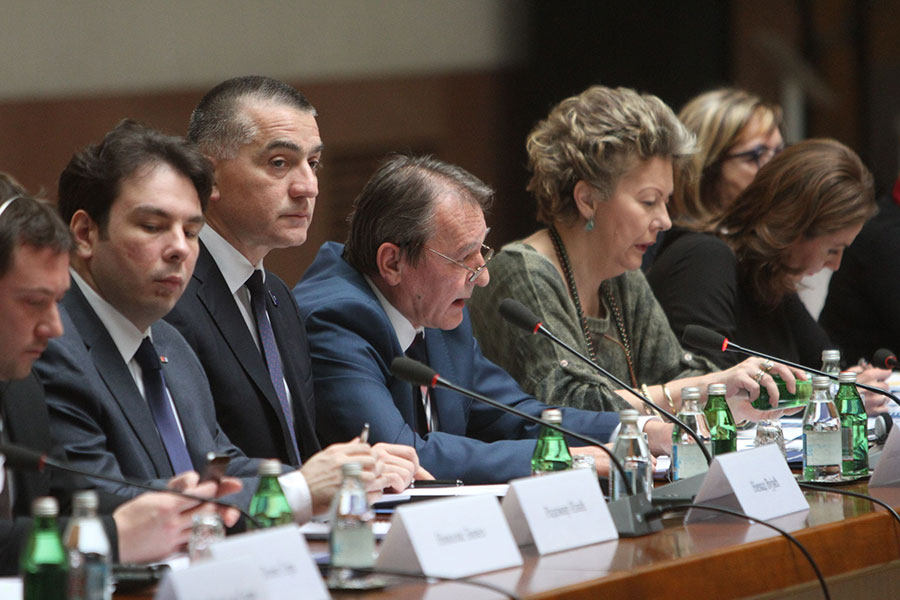The EU Delegation to Serbia and the Judicial Academy marked the first year of successful implementation of the project “Enhancing Educational Activities and Improvement of Organisational Capacities of the Judicial Academy” with the Ministry of Justice as the project holder and the Justice Academy as its beneficiary.
The two-year project, funded with EUR2 million under the Instrument for Pre-Accession Assistance, is implemented by the consortium led by the British Council with the goal of enhancing educational activities and organisational capacities within the Judicial Academy.
Through the project, the EU is supporting the Judicial Academy in training professional, independent, unbiased and efficient judges and prosecutors as well as increasing the efficiency and expertise of judicial and prosecutorial staff.
The goal of the project is to not only modernise the judicial system but also to contribute to the alignment of case law among all national courts and harmonising it with EU standards. It is believed that project activities would eventually lead to fewer infringements of the European Charter on Human Rights compared to previous assessments carried out by the European Court of Human Rights.
Nicolas Bizel of the EU Delegation to Serbia said that the technical assistance provided through this project to the Judicial Academy represented an opportunity for the country to comply with some of the benchmarks agreed for Chapter 23. He said that the project “assessed the current gaps in judicial training, both initial and continuous, and has proposed very thoughtful and detailed recommendations which, if applied, we believe would further improve the functioning and governance of the Judicial Academy.“
According to him, “despite all the considerable investments, from the EU side as well, and efforts made in these years, from year 2014 only 6% of graduates from the Judicial Academy have been appointed for judicial or prosecutor’s offices, and 67 graduates of the Judicial Academy who have completed their initial training are still waiting to be nominated. This is a matter for concern for the EU.“
The President of the Constitutional Court Vesna Ilic-Prelic said that more than 10,000 constitutional appeals a year showed that citizens regularly grasp at the opportunity to protect their rights, but it also revealed “a general lack of confidence” in judiciary among Serbian citizens.
She said that the Constitutional Court was a national institution that should act as “small-scale Strasbourg”, allowing the process of exercising the rights to be carried out at the national level without seeking an intervention from international institutions.
“The system of human rights protection was enhanced nine years ago through the establishment of constitutional appeals as a mechanism for the protection of human rights and freedoms guaranteed by the Constitution,” Vesna Ilic-Prelic said.
The President of the Supreme Court of Cassation Dragomir Milojevic said that the European law should be brought closer to national courts.
He said that the Supreme Court of Cassation strove to contribute to decreasing the number of citizens’ complaints and petitions filed with that Court through the harmonisation of case law.
The conference marking the first year of the project brought together numerous international experts, judges of the European Court of Human Rights and the Supreme Administrative Court of the Czech Republic and more than 100 judges from the national courts, the Constitutional Court, the Supreme Court of Cassation, appellate courts, higher courts, as well as prosecutors of the republic, appellate and higher prosecutors’ offices. The exchange during the panel discussion aimed at improving the protection of human rights at the national level.




